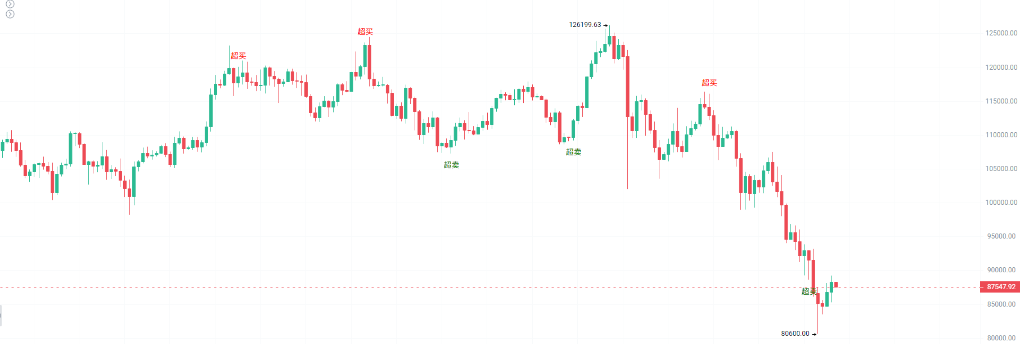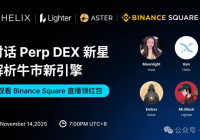Navigating CFTC Regulations for Crypto Funds
Law and Ledger is a news segment focusing on crypto legal news, brought to you by Kelman Law – A law firm focused on digital asset commerce.
The following opinion editorial was written by Alex Forehand and Michael Handelsman for Kelman.Law.
A Guide to CFTC Rules for Crypto Investment Funds
With U.S. regulators increasingly classifying digital assets like Bitcoin and Ethereum as commodities, the regulatory landscape for crypto funds is shifting. Instead of navigating only the SEC’s investment adviser rules, managers may now fall squarely under the Commodity Exchange Act (CEA) and the jurisdiction of the Commodity Futures Trading Commission (CFTC).
This change opens both opportunities and obligations for fund managers—especially those seeking to trade crypto derivatives such as futures, swaps, or perpetual contracts. If your crypto fund qualifies as a commodity pool, you may be a Commodity Pool Operator (CPO)—a designation that carries specific registration and compliance obligations. Those operating a crypto fund also likely need to register as a Commodity Trading Advisor (CTA).
Understanding the Regulatory Players
The CFTC is the primary U.S. regulator for commodity derivatives markets. The CFTC does not typically regulate spot commodity trading; instead, it oversees commodity interests—which include futures, options, and swaps on commodities (including many crypto assets). Under 17 C.F.R. § 180.1, however, the CFTC does have jurisdiction over the underlying spot markets when fraud or manipulation is involved (CFTC v. McDonnell, 287 F.Supp. 3d 213 (E.D.N.Y. 2018)).
The National Futures Association (NFA) is the self-regulatory organization for CFTC registrants. If you register as a CPO or CTA, you’ll also become an NFA member.
The Securities and Exchange Commission (SEC) is still relevant if your fund trades securities tokens or other non-commodity instruments, or if you also qualify as an investment adviser.
Commodity Pools and Commodity Pool Operators
Under the CEA, a commodity pool is any investment fund or similar enterprise in which investor contributions are pooled together to trade commodity interests on behalf of the participants.
Commodity interests include futures contracts, options on futures, swaps, certain retail leveraged commodity transactions, and, increasingly, crypto derivatives such as Bitcoin and Ether futures or perpetual contracts. If your crypto fund engages in these activities—even as part of a diversified strategy—it may be deemed a commodity pool.
A Commodity Pool Operator (CPO) is any person or entity that solicits, accepts, or receives funds from investors for the purpose of operating a commodity pool and who is responsible for managing that pool’s trading activities.
For crypto fund managers, if you are raising capital from investors to trade crypto derivatives, the CFTC may consider you a CPO. If, however, you are raising capital from investors to trade solely in crypto spot markets, you will unlikely be considered a CPO that needs to register, though the CFTC can still claim jurisdiction if your trading involves the use of fraud or manipulation of the underlying spot markets.
Crypto fund managers are also likely to be considered Commodity Trading Advisors under the CEA. A CTA is a person who, for compensation or profit, engages in the business of advising others, directly or indirectly, as to the value of or the advisability of trading in commodity interests. Commodity interests include crypto derivatives such as Bitcoin or Ether futures, options, or perpetual swaps. The definition is intentionally expansive. It covers not only those providing commodity trading advice, but also discretionary account managers who trade on a client’s behalf.
If your fund trades crypto assets that are deemed securities—such as yield-bearing tokens, investment contracts, or other assets that satisfy the Howey test—or derivatives based on those securities, you may also be required to register with the Securities and Exchange Commission (SEC) as an investment adviser, or qualify for an applicable exemption.
The discussion in this article applies only to funds trading crypto assets considered commodities under U.S. law, such as Bitcoin and Ether. While the regulatory landscape remains fluid, the current tide in the United States appears to be moving toward most native blockchain coins, non-yield-bearing stablecoins, utility tokens, and even some memecoins being treated as commodities rather than securities.
That said, it remains to be seen how the SEC will address its enforcement actions alleging that nearly 30 different crypto assets are securities—outcomes that could materially impact the compliance obligations of certain crypto funds.
Registration and Reporting Requirements
A crypto fund manager who qualifies as a Commodity Pool Operator or a Commodity Trading Advisor must generally register with the Commodity Futures Trading Commission (CFTC) and become a member of the National Futures Association (NFA) before soliciting or accepting investor capital.
The first step in registration is filing Form 7-R for the firm and Form 8-R for each principal and associated person through the NFA’s online registration system. Each individual associated person must also submit to a fingerprint-based background check. Principals and certain employees may be required to pass the Series 3 National Commodity Futures Examination (and in some cases, the Series 31 Managed Funds Examination) unless a waiver is available.
Once registered, both CPOs and CTAs must prepare and deliver a CFTC-compliant Disclosure Document to prospective participants or clients before soliciting or accepting funds or entering into an advisory relationship. While the specific content requirements differ slightly—CPOs must describe the structure and terms of the commodity pool, whereas CTAs must outline their trading program(s) and advisory arrangements—both documents must contain detailed information about the trading strategy, principal risk factors, performance history (if applicable), fees and expenses, conflicts of interest, and other material disclosures.
In each case, the National Futures Association (NFA) must review and accept the Disclosure Document before it can be used. The document must be updated and re-approved at least every 12 months, and sooner if any material information changes, to ensure that all prospective investors or clients receive current, accurate, and complete information.
CPOs and CTAs are also required to submit ongoing regulatory filings to the National Futures Association (NFA). For CPOs, the primary filing is Form CPO-PQR, which reports on each pool’s size, leverage, trading activities, and risk metrics. Depending on the pool’s assets under management, this filing may be required quarterly or annually. For CTAs, the counterpart is Form PR, which provides information on the size and scope of the advisory business, including the number of accounts directed, assets under advisement, market sectors traded, and details of the trading programs offered. These filings support the CFTC’s and NFA’s oversight of market participants and systemic risk.
In addition to these regulatory reports, CPOs must provide periodic account statements to pool participants and annual reports certified by an independent public accountant, while CTAs must deliver periodic statements to advisory clients in accordance with CFTC and NFA requirements.
Books and records must be maintained in accordance with CFTC and NFA rules, and must be available for inspection upon request. These include investor subscription agreements, bank statements, trade confirmations, performance calculations, marketing materials, and internal compliance policies. The NFA will conduct periodic examinations to verify compliance, during which they will expect to see robust written supervisory procedures, a designated compliance officer, and clear evidence of adherence to both CFTC and NFA rules.
Importantly, registration does not end with initial approval. CPO status carries continuing obligations—from advertising restrictions to anti-fraud provisions—and the NFA has the authority to impose disciplinary action for violations. For managers entering the digital asset space, understanding and preparing for this compliance infrastructure at the outset can prevent costly regulatory disputes and operational disruptions later.
Common Exemptions for CPOs and CTAs
Two CFTC rules are particularly relevant to crypto fund managers seeking relief from full CPO registration.
Rule 4.13(a)(3) – “De Minimis” Exemption
This exemption is available to potential CPOs if:
- The pool limits its commodity interest trading to a small percentage of net asset value (5% margin test or 100% net notional test); and
- All participants are accredited investors or certain other qualified persons.
Even with this exemption, you must file an electronic notice of exemption with the NFA before relying on it, and the anti-fraud provisions of the CEA are still applicable.
Rule 4.7 – Qualified Eligible Person (QEP) Exemption
This exemption is available to potential CPOs if:
- The pool restricts participation to Qualified Eligible Persons (a higher standard than accredited investors—generally institutional investors and high-net-worth individuals with substantial commodity experience); and
- The CPO agrees to operate under reduced disclosure, reporting, and recordkeeping requirements.
This exemption is widely used by sophisticated private funds because it allows active commodity trading without the “de minimis” cap.
There is also an exemption to CTA registration for funds acting as CTAs to their own pools. Rule 4.14(a)(4) provides that if a fund is a CTA only for pools for which it is also the CPO, and the fund doesn’t provide advice to any other accounts or pools, the fund is exempt from separate CTA registration. In that case, the fund registers (or claims an exemption) as the CPO, but not as a CTA, because the advisory activity is “internal” to the pool.
There is also a de minimis exemption to CTA registration that is available to funds that: (i) have fewer than 15 clients in the past 12 months, (ii) do not hold themselves out to the public as CTAs, and (iii) whose CTA activity is not their primary business. While the de minimis is a nice fallback for funds that advise other accounts or pools, and therefore do not qualify for the Rule 4.14(a)(4) exemption, the fund itself is considered one of the fifteen clients for CTA purposes if it is also a pool participant.
Marketing and Investor Restrictions Under Exemptions
Even when operating under a CPO or CTA exemption, fund managers must remain mindful of their ongoing obligations to investors and regulators. Exempt status does not authorize misleading statements or omissions regarding the risks, regulatory oversight, or nature of the fund’s activities. Any offering materials must contain risk disclosures appropriate to the investment strategy and asset class, particularly where digital assets and derivatives are concerned.
In addition, exempt CPOs and CTAs must maintain accurate and complete books and records, and be prepared to produce them promptly if requested by the CFTC or NFA. In practice, this means that even an exempt crypto fund should implement a compliance infrastructure capable of meeting regulator-level documentation and disclosure standards.
Structuring Considerations for Crypto Funds
Determining whether CPO or CTA registration or an exemption is appropriate requires a thorough evaluation of the fund’s structure and operations. A key factor is the scope of advice and trading: funds engaged in crypto derivatives—whether Bitcoin futures, Ether options, or perpetual swaps—will almost always fall within the CEA’s commodity pool definition, while spot-only strategies may avoid CPO and CTA obligations altogether.
The composition of the investor base also matters. Exemptions such as Rule 4.13(a)(3) or Rule 4.7 impose eligibility requirements, ranging from accredited investor standards to Qualified Eligible Person thresholds, which may limit capital-raising options.
Jurisdictional considerations are equally important, as domestic funds marketed to U.S. investors typically require a CPO and CTA analysis, and offshore funds may still trigger U.S. obligations if they accept U.S. capital.
Finally, hybrid funds that trade both securities and commodities may be subject to overlapping SEC and CFTC regulation, requiring coordinated compliance strategies. As is evident, the appropriate structuring is best determined on a case-by-case basis, balancing all the interests of the fund.
Key Takeaways for Crypto Fund Managers
For crypto fund managers, the implications of the CPO/CTA framework are straightforward but significant. If your fund engages in crypto derivatives trading, there is a high likelihood that it is operating as a commodity pool under the CEA and providing commodity trading advice. In that case, the person or entity managing the pool will be deemed a CPO and CTA and must either register with the CFTC and become an NFA member or qualify for—and properly claim—an exemption.
The most frequently relied upon exemptions are narrowly tailored and impose specific investor eligibility requirements. It is important to remember that exempt status does not shield a fund from the CFTC’s anti-fraud provisions, recordkeeping rules, or enforcement authority. In today’s regulatory environment, early and deliberate structuring decisions—covering jurisdiction, investor qualification standards, and trading strategy—can make the difference between streamlined compliance and costly remedial action.
Our Perspective
At Kelman PLLC, we regularly advise fund managers launching crypto funds on whether CPO obligations apply, and—when they do—on efficient registration strategies, exemption eligibility, and compliance programs that can withstand regulatory scrutiny. The CFTC and NFA have been increasing their oversight of digital asset derivatives, and proactive compliance is no longer optional.
If you are considering launching a crypto fund—or are currently operating one without a CPO or CTA analysis—now is the time to ensure you are aligned with the Commodity Exchange Act framework. If you believe we could be of help, or for more information, please contact us here.
This article originally appeared at Kelman.law.
Disclaimer: The content of this article solely reflects the author's opinion and does not represent the platform in any capacity. This article is not intended to serve as a reference for making investment decisions.
You may also like
Is the crypto market experiencing a rebound or a reversal?

Global assets surge as the Federal Reserve signals interest rate cuts


Federal Reserve December Rate Cut: A Comprehensive Analysis of Supporters and Opponents

